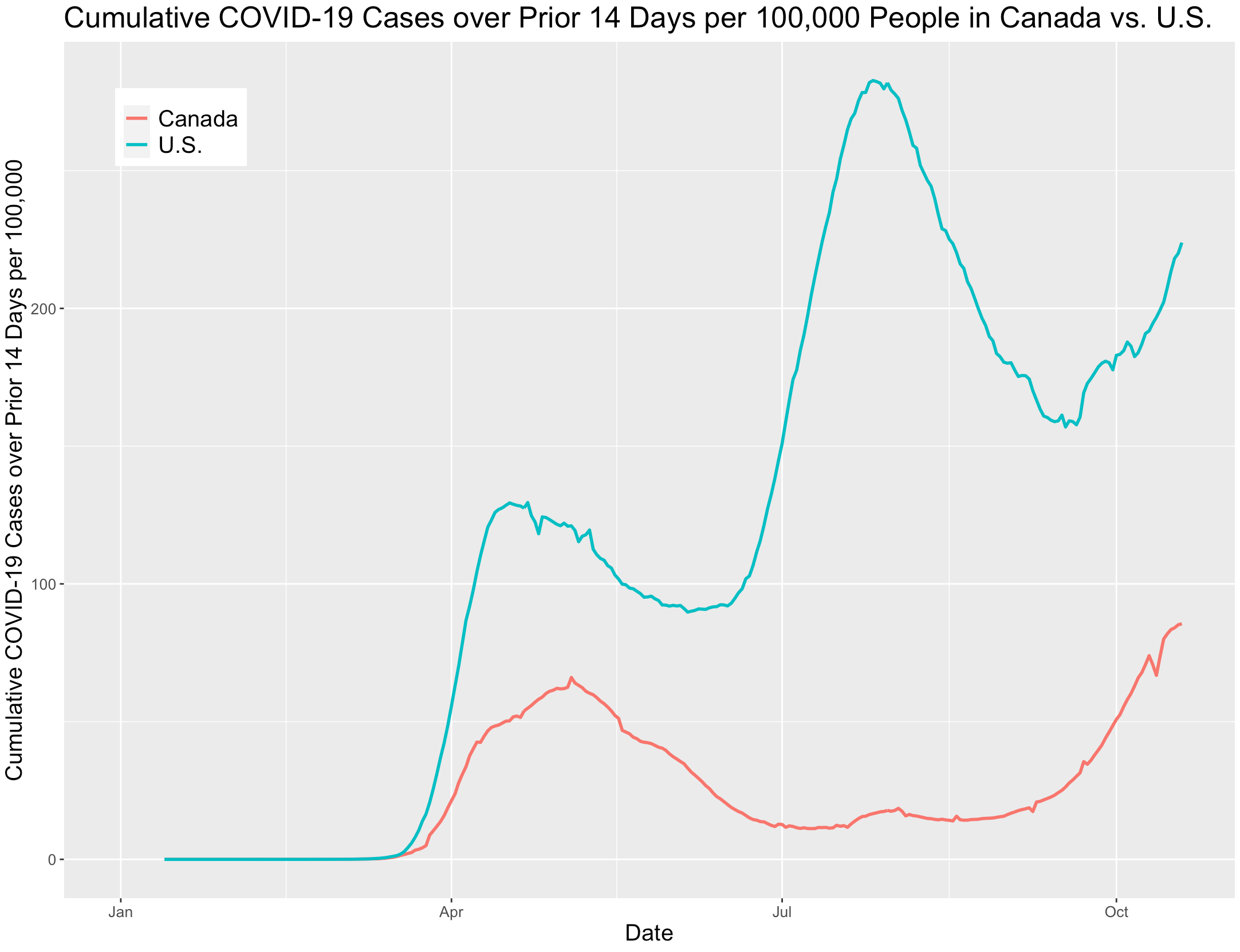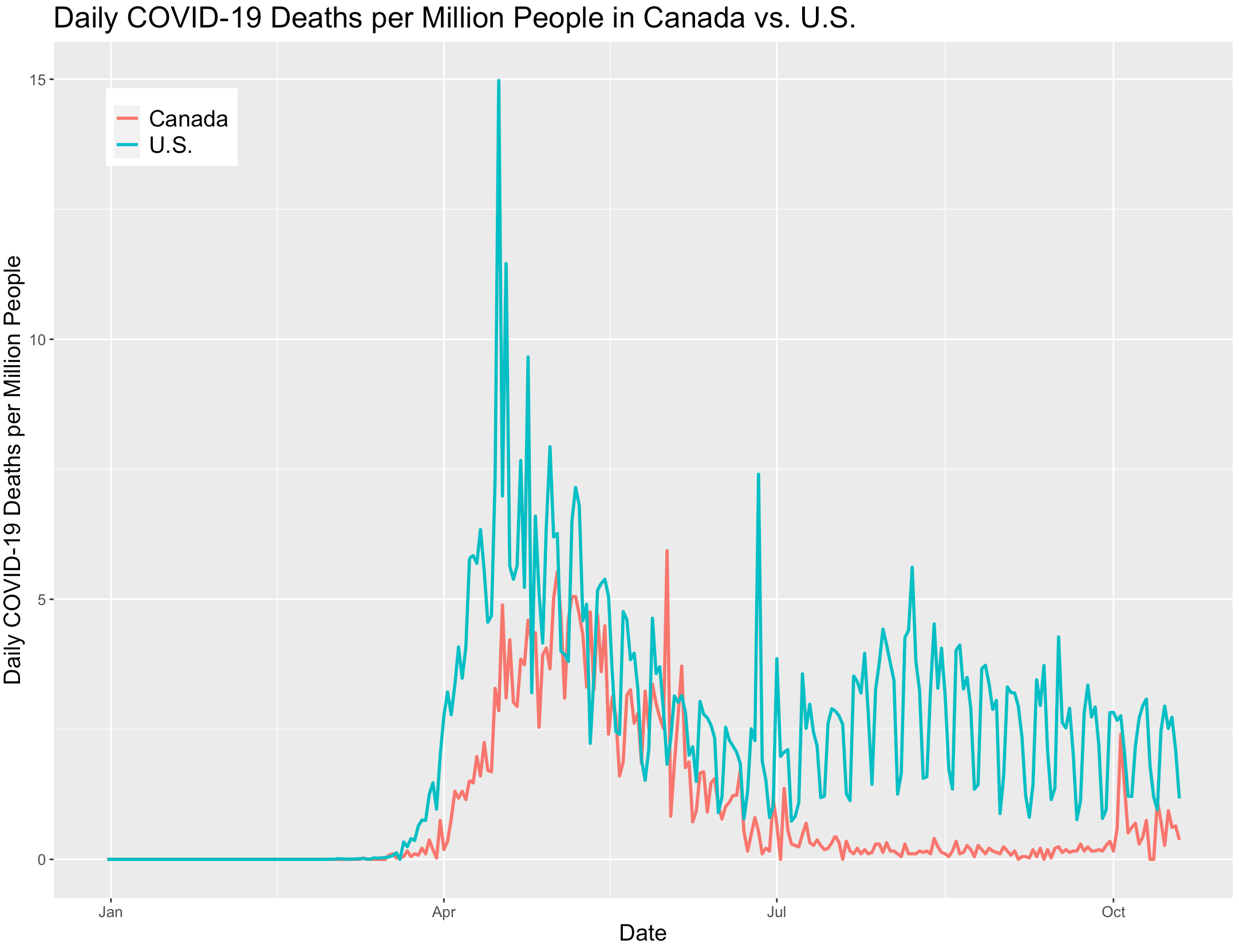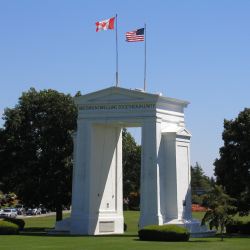Our friendly neighbors to the north are fibbing about the coronavirus in their country, justifying a border closure with the United States that no longer makes sense.
Last week, Prime Minister Justin Trudeau of Canada announced that the U.S.-Canada border would likely remain closed to all non-essential travel due to concerns about the spread of the coronavirus in the U.S. I thought that he would change his mind once he took a look at the data, but I was wrong. Trudeau confirmed the decision on Monday.
For good measure, the minister for public safety chimed in, adding on Twitter, "Our decisions will continue to be based on the best public health advice available to keep Canadians safe." Of course, the implication is that Canada has things under control, and Canadians don't want their utopia contaminated by a bunch of filthy, germ-laden Americans. The problem is that their version of reality isn't true. Data from the European CDC shows why.
The following chart depicts the number of new cases each day per million people in the U.S. and Canada. While the U.S. is doing worse than Canada, the latter is still experiencing an upward trend in cases. The border shutdown doesn't seem to be having the intended effect.

Note the anomaly in the cases reported in Canada in mid-October. On two days, zero cases were reported; on subsequent days, roughly double the number of expected cases were reported, so this is certainly a data reporting error. Thus, we can look at the cumulative number of new COVID cases over the past 14 days. This helps smooth out fluctuations and errors.

Presented this way, the data are pretty clear. The U.S. is now entering a third wave, while Canada is entering its second wave. On the final day that data are available (October 19), Canada's 14-day cumulative was 86 per 100,000, while the U.S. had 224 per 100,000. By this measure, the U.S. is doing about 2.5 times worse than Canada. But once again, the entire point of a border closure is to prevent an outbreak. The intended effect isn't happening. Canadians are perfectly capable of spreading the virus all by themselves.
The one measure by which Canada is doing substantially better than the U.S. is in the number of COVID deaths.

So, perhaps this is what ultimately persuaded Trudeau to keep the border closed. But, it's pretty easy to stop infected people from entering the country: Require an RT-PCR test for coronavirus, which detects an active infection. At the border, agents can check for passports and negative RT-PCR results. Simple.
However, this decision was probably more political than scientific. A whopping 90% of Canadians want the border with the U.S. closed, so Trudeau gave them what they wanted. As long as that sentiment remains, the border is likely to remain closed, regardless of what the data say.

